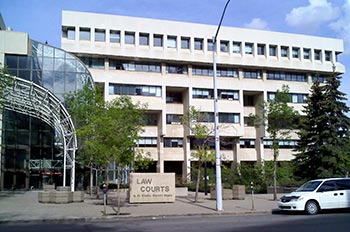THE DOCUMENTS
Estate Inventory
Prepare an inventory of your estate. This will save time, ensure valuable assets are not lost and simplify distribution of your estate. Provide enough information for your executor to easily identify and locate each item. Review your estate inventory annually and update it when significant changes occur.
Protect your completed Estate Inventory as the information it contains is sensitive. Print a copy to store with your Will. Use a removable storage device, like a USB flash drive, to retain an electronic copy.
Estate Inventory Workbook – fillable PDF
DownloadYour Will
Your Will lets you decide what happens to your estate when you die. It allows you to distribute your property, name an executor, appoint a guardian for your children, forgive debts and more. With a Will, your estate can be wound up with the least amount of pain for your loved ones. If you pass away without a Will, Alberta’s Wills and Succession Act determines who gets your property when you die. This can be frustrating and costly for everyone involved.
Personal Directive
A personal directive allows someone you trust – your Agent – to make decisions about your medical treatment and living arrangements if you are unable to do so yourself. It’s commonly asked for on admission to hospital, in case a medical decision must be made while you lack the capacity to do so yourself.
The need for a personal directive may be short-term, such as when a serious illness or accident leaves you unable to make decisions for a few days. However, in the event of serious brain injury or a progressive condition like Alzheimer’s Disease, a personal directive may be required for the remainder of your life.
Enduring Power of Attorney
An enduring power of attorney is an agreement that allows a person you trust – your Attorney – to make financial decisions on your behalf if you are medically unable to do so yourself. Without an enduring power of attorney, even your spouse has no legal authority to perform a variety of important financial tasks for you if you become disabled.
As with the personal directive, the need for your Attorney to exercise an enduring power of attorney can range from short-term to the remainder of your life.

No Capacity and No Agreement?
If you lose your capacity without a personal directive or an enduring power of attorney, a friend or family member might have to get the court’s approval to make decisions for you. Separate applications would have to be submitted, possibly by different people, to become your guardian and your trustee. This process typically takes three to six months for the paperwork to be finalized and the court to make a decision. There are costs involved and there may be conflicting views, as to who should be appointed, for the court to sort out.
GETTING IT RIGHT
Making a Will doesn’t have to be difficult. Our template guides you through the process and provides you with a ready-to-sign formal Will. Just click the information icon beside a field name if you have any questions.
Before you begin, you should:
- Collect some basic information by completing the Estate Inventory Workbook, which can be downloaded using the above link.
- Identify your beneficiaries and executor. For most people, this is their significant other – a spouse or adult interdependent partner.
- Select guardians for your children if any are under 18 years of age. This is important if you and your significant other pass away at the same time and with blended families.
WRAPPING IT UP
Your final step is to head to a participating Alberta registry office. Your final documents will be printed for you, witnesses supplied and an Affidavit of Execution of a Will provided. These services are important as:
Witnesses Cannot be a Beneficiary
Do not let a beneficiary or your spouse sign as a witness your Will, otherwise a gift made to that beneficiary will not be valid. Your registry office will supply independent witnesses, who do not need to read your Will. All they have to do is see you sign your name to the Will and then they sign the Will in front of you.
The Affidavit of Execution
Your Will must go through probate after you pass away. During probate, your executor must prove the validity of the Will to the probate court. The most common proof is an Affidavit of Execution signed by one of the witnesses stating the the signing process was appropriate — you were aware of what you were signing and did so voluntarily. By signing the Affidavit of Execution right after witnessing your Will, the proof required by the probate court will be readily available.
Your estate may incur significant costs and time delays if the Affidavit of Execution is not prepared when you sign your Will. A witness — if one is still alive and mentally competent — will have to be located. If one is not available after an exhaustive search, your executor will have to locate someone else who was in the room at the time of signing and/or someone who can swear the signature on the Will is yours.

